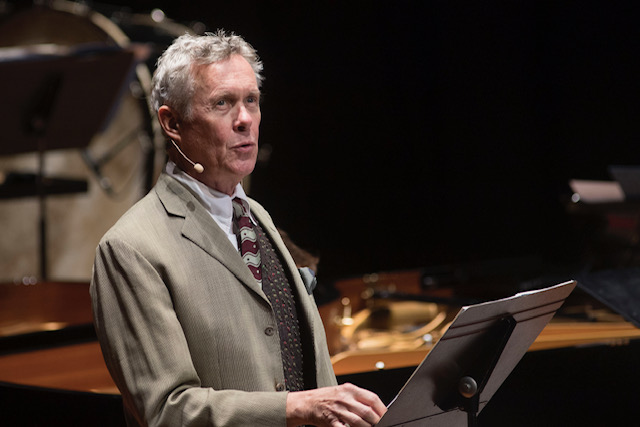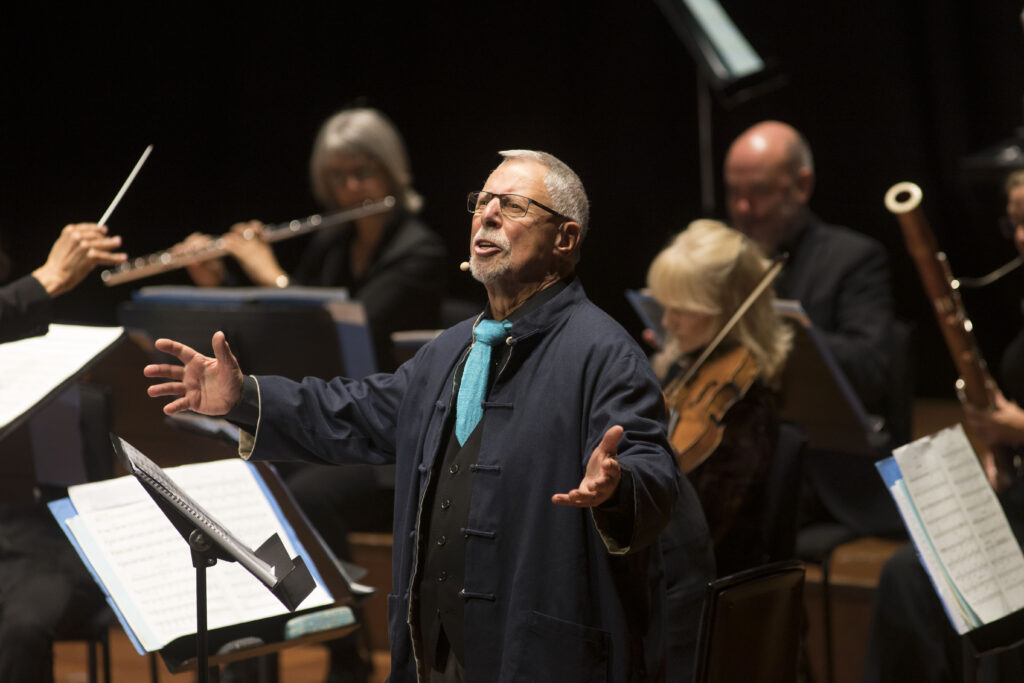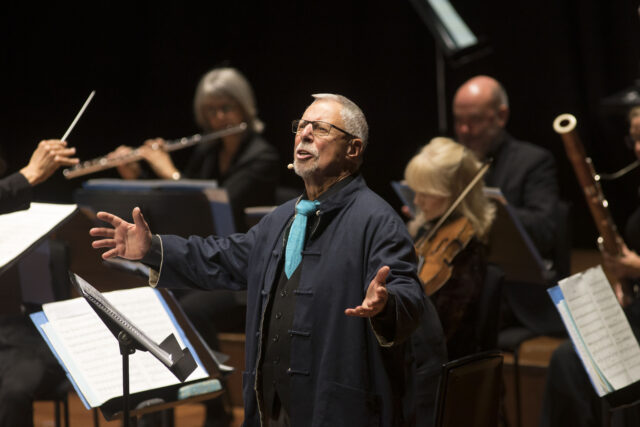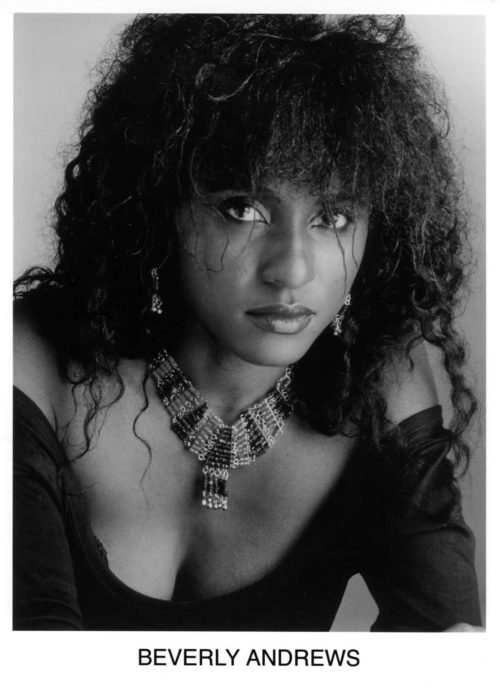There’s a saying which goes that it’s never wise to meet your heroes since it suggests you will be disappointed. Britain’s most celebrated classical composer, Benjamin Britten, not only met his hero, in the shape of poetry legend Wystan Auden but worked with him for a period of time at the beginning of his illustrious career. Their partnership was a dazzling success but then Britten suddenly walked away and never spoke to Auden again. This lovely evening produced by the London Sinfonia traces this problematic, but fruitful collaboration.

The evening’s song cycle begins at the dawn of this fraught partnership when a teenage Britten suffering from a sense of inferiority met the already famous older Auden. Auden in turn encouraged Britten’s love of poetry. Reading from their correspondence is Olivier winner Alex Jennings as Britten and artistic director of Northern Broadsides theatre company Barrie Rutter as Auden.
Britten meticulously kept almost all the correspondences he ever wrote throughout his life and this is now part of the Benjamin Britten archives in the Red House, in Aldeburgh. Part of the classical music centre he with his partner, Peter Pears, founded. His retention of all his correspondence suggest someone who was either a hoarder or someone who was well aware that it was material, which would be useful to a future biographer one day. I suspect it was the latter. But the letters they exchanged illuminate the early years of their relationship, and its lovely to hear them read. Britten’s adulation of Auden is clear to all as he writes in his diary “Auden is the most amazing man”.
Early in their relationship, WH Auden wrote a poem for Benjamin Britten that urged the younger man to pursue his passions – musical and erotic – and curb his fearful longing for comfort and safety. And also, to embrace his sexuality. This alone illustrated their very different personalities, Auden a true bohemian, whose work was all about taking risks and the young Britten who was far more cautious, someone still working to find his true voice.
These two artistic giants joined together, and created work for theatrical rebels the Group Theatre. This was perhaps the happiest junction in their artistic collaboration. The company included such celebrated figures as Christopher Isherwood, the author of Goodbye to Berlin, the basis of Cabaret, as well as writers Louis Mac Niece and Stephen Spender; with artists such as Henry Moore contributing designs for their productions. The names of the actors for these productions also read like a who’s who of British theatre and they include Trevor Howard and Alec Guinness. During this golden period, Auden wrote plays for the group with Britten composing music for many of them. Little survives from this fruitful period but listening to Britten’s diary extracts they suggest this may have been among the happiest times the two spent together.
The pair not only collaborated on theatre productions but also on two BBC dramas, Up the Garden Path and Hadrian’s Wall. The pinnacle of this collaboration would though take place when both were living in America, and it’s the operetta Paul Bunyan. A work with a troubled history but one, which would nevertheless be revived after Auden’s death and be produced to critical acclaim; and also from that same time is the sublime Hymn to St Cecilia.
You do feel as Britten’s confidence grows so does his desire to stretch the artistic forms in which he worked. We see how his growing confidence also rankles with an Auden who is cautious of public praise and continues to warn the younger artist against making easy artistic choices. The wonderful Johnnie Fiorie is on hand throughout the evening and sings some of the music from these period and later ones, including the much-quoted Auden poem, Funeral Blues.
The evening suggests that the relationship flounders on Britten’s longing for a kind of middle-class acceptance, which Auden warns is a creativity sapping trap. Their relationship finally breaks down in 1953 after Auden sends a letter criticising a recent work of Britten. Reportedly Britten tore up the letter and never spoke to him again and yet when Auden died Britten was inconsolable. It was a pattern Britten would repeat, for the rest of his life, close artistic collaborations followed by painful break ups and then silence.
Perfection of a Kind: does suggest that Britten would not have possibly gone on to become the great composer he was without the early support of Auden and when their partnership worked the art they produced together was just divine.

- Shama Rahman: fusing art & neuroscience
- Dance: twenty questions to José Navas
- In the Black Fantastic
- LE LABYRINTHE FAMILIALE DU DUC DE BRETAGNE – JEAN V, 1399-1442
- The Populist Tango



